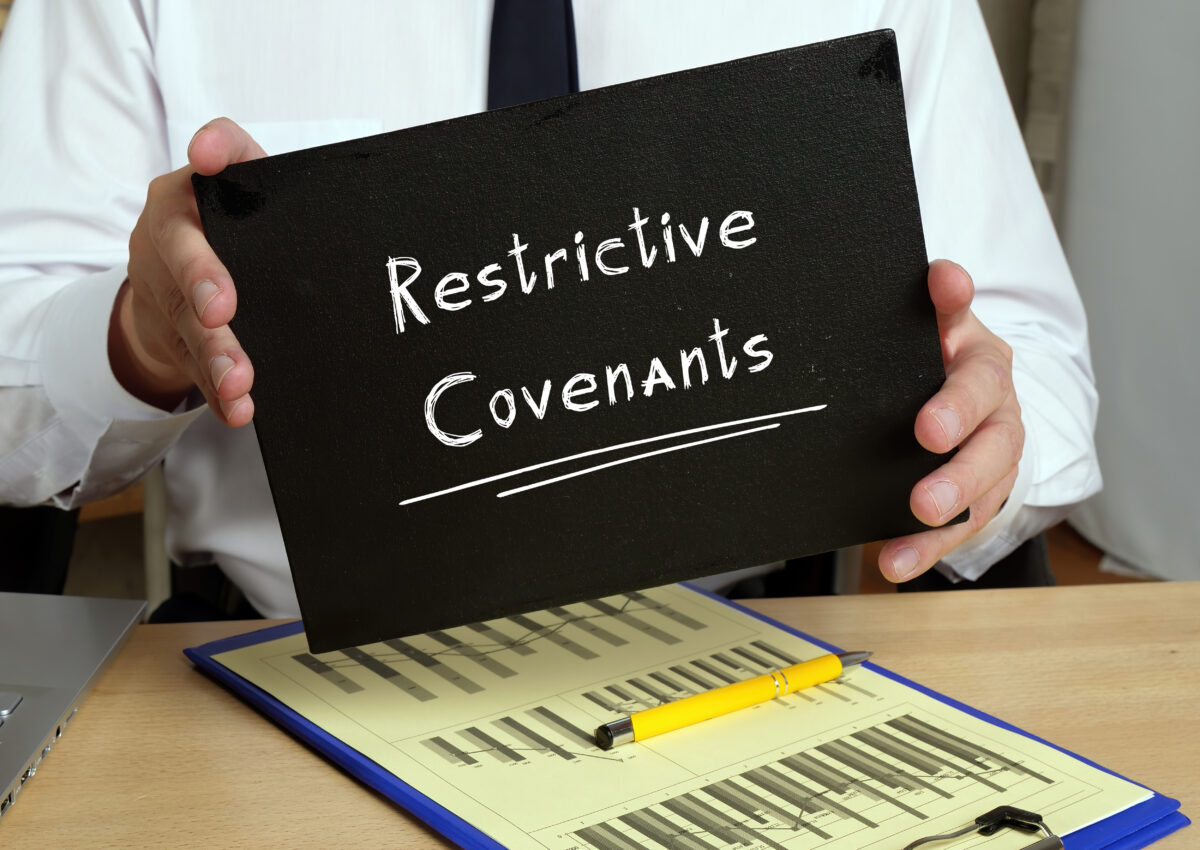
Understanding Non-Compete Agreements in Illinois
Navigating the world of employment can be complex. This is especially true when it comes to non-compete agreements.
In Illinois, these agreements are a common part of many employment contracts. They aim to protect a company’s interests, but they can also impact an employee’s future career opportunities.
Understanding non-competes in Illinois is crucial for both employers and employees. It’s not just about knowing the law, but also understanding its implications.
This article will delve into the specifics of non-compete agreements in Illinois. We’ll explore their legal context, enforceability, and the balance between protecting business interests and preserving employee rights.
Whether you’re an employer drafting a non-compete, or an employee asked to sign one, this guide will provide the insights you need.
So, let’s dive in and unravel the complexities of non-compete agreements in the context of Illinois labor laws.
What Are Non-Compete Agreements?
Non-compete agreements are contracts between employers and employees. They prohibit employees from working with competing businesses. These agreements are often part of an employment contract.
The main purpose of non-compete agreements is to protect business interests. This includes safeguarding trade secrets and confidential information. It also aims to prevent poaching of clients or key employees.
Here’s what non-compete agreements typically specify:
- The duration of the restriction.
- The geographic area where the employee cannot work.
- Specific activities or positions that are prohibited.
However, these agreements should be fair and not overly restrictive. A non-compete must not unreasonably hinder an employee’s career. To be enforceable, it must balance employer rights and employee freedom.
Non-compete agreements are legal tools but come with limitations. In Illinois, these limitations are strictly defined under state law. Understanding how these agreements work is essential for anyone involved in employment contracts.
In essence, while they aim to protect businesses, the application of non-competes requires careful consideration. Both parties need to be fully aware of their rights and obligations.
The Legal Framework of Non-Competes in Illinois
In Illinois, non-compete agreements are governed by state law, which sets strict requirements for enforceability. These laws aim to protect both employees and employers by ensuring fair practice.
A key piece of legislation in Illinois is the Illinois Freedom to Work Act. This law regulates the use of non-compete clauses, particularly for low-wage workers. It prevents unfair restrictions on their employment opportunities.
Illinois labor laws require that non-competes serve legitimate business interests. This means they must protect trade secrets, maintain client relationships, or prevent unfair competition. The law ensures these agreements are not used to simply limit competition.
For a non-compete to be enforceable, it must be reasonable in scope. The terms should not be overly broad in geography or excessively long in duration. Courts closely scrutinize these elements to maintain a fair balance.
Moreover, Illinois law mandates that these agreements include adequate consideration. In other words, employees must receive something of value in exchange for agreeing to the restrictions. This is crucial for the agreements to be legally binding.
The Illinois Freedom to Work Act
The Illinois Freedom to Work Act took effect to safeguard the rights of low-wage workers. It prohibits employers from enforcing non-competes on this group of employees. By doing so, it aims to protect economic mobility and job access.
Under this Act, any non-compete for workers earning minimum wage or less than a certain threshold is unenforceable. The Act reflects a growing trend to protect vulnerable workers. It underscores the importance of reasonable employment practices.
In essence, this legislation is part of broader efforts to ensure fair labor practices in Illinois. It aligns with trends across the country limiting unjustifiable employment restrictions. This Act highlights the state’s commitment to balancing employer and employee interests fairly.
Enforceability of Non-Compete Agreements
For a non-compete agreement to hold up in Illinois, it must satisfy several legal criteria. These criteria are designed to ensure fairness and reasonableness, key tenets of Illinois labor laws.
First and foremost, the agreement must serve a legitimate business purpose. It should protect valid interests, such as trade secrets or long-standing client relationships. Without such justification, enforcement becomes challenging.
Non-competes must also be reasonable in scope, geography, and duration. This reasonableness is evaluated by considering how narrowly the restrictions are drawn. Excessive limitations are likely to be struck down.
The enforceability of these agreements also hinges on the concept of adequacy in compensation. Employees must receive a clear benefit as consideration for entering into a non-compete. This benefit distinguishes enforceable agreements from those that merely restrict rights.
To summarize, the enforceability of non-competes in Illinois depends on:
- Serving a legitimate business interest.
- Being reasonable in scope and duration.
- Providing adequate consideration to the employee.
Finally, Illinois courts take a thorough approach in enforcing non-competes. They examine each element to ensure it aligns with both statutory requirements and public policy. This approach ensures a balanced outcome for both parties involved.
Adequate Consideration in Illinois
In Illinois, the concept of adequate consideration is paramount in non-compete agreements. Consideration refers to something of value exchanged between parties, necessary for any contract.
For non-competes, consideration might include a job offer, a promotion, or specialized training. This ensures that employees receive tangible benefits, legitimizing the agreement. Without clear consideration, the non-compete could be deemed unenforceable.
Reasonableness in Scope, Geography, and Time
The reasonableness of non-compete agreements is critical in Illinois. Courts closely evaluate if the restrictions are necessary for the employer’s interest.
Geographic scope should align with the specific market area where the employer operates. Unreasonably broad geographical restrictions may render the agreement invalid.
Similarly, time restrictions must align with business needs. Courts generally favor short, clearly defined durations, preventing undue hardship on employees.
In essence, non-compete agreements must carefully balance employer needs with employee rights, a key principle under Illinois labor laws. A precise scope and duration ensure the agreement serves its intended purpose without overreach.
Protecting Legitimate Business Interests
Non-compete agreements are vital tools for safeguarding legitimate business interests. They help protect sensitive data like customer lists and trade secrets. This legal protection ensures that businesses remain competitive and secure.
Moreover, these agreements prevent former employees from leveraging insider knowledge against their previous employers. By doing so, companies can maintain their market position and ensure continued growth. While protecting business interests, it’s crucial to balance employee freedoms under Illinois labor laws.
The Impact on Employees and Career Mobility
Non-compete agreements can significantly impact employees’ career paths. They often limit where and how former employees can seek future employment. This restriction can hinder career growth and opportunities.
For employees, a non-compete can mean facing extended unemployment. Especially if their specific industry has limited employers within a geographical area. This can lead to significant financial and emotional stress.
The restrictions imposed by these agreements affect employee mobility, causing frustration. Employees may feel trapped in less favorable positions. This limitation highlights the importance of understanding the implications before signing such agreements. Employers and employees need to find a fair balance that respects both parties’ interests.
Recent Changes and Trends in Non-Compete Laws
Illinois has witnessed significant shifts in non-compete agreements recently. Legislative changes have aimed at enhancing employee rights and limiting employer power. These efforts focus on making non-competes more fair and reasonable for workers.
The state’s trend mirrors a broader national movement. Many states are reassessing the use and scope of non-competes. This reevaluation aims to balance protecting business interests and fostering a competitive job market. Continuous vigilance on legislative updates is essential for employers and employees alike. This ensures compliance with evolving laws and best practices.
Challenging and Negotiating Non-Compete Agreements
Navigating non-compete agreements can be complex for both parties. Employees often find themselves worried about the limitations these contracts may impose on their future career opportunities. Fortunately, there are strategies available to contest or negotiate these agreements.
One important step is reviewing the enforceability of the non-compete terms. Employees should scrutinize whether the restrictions are reasonable and if adequate consideration was provided. If a non-compete seems overly broad or unfair, it can potentially be challenged in court. Presenting clear evidence that the agreement is unreasonable could render it void.
Negotiation is another key aspect for employees and employers. Both parties can benefit from reaching mutually agreeable terms. It often involves balancing the protection of business interests with the necessity to pursue personal and career growth. Open communication and compromise can lead to more balanced and fair agreements that serve both sides well.
Role of Legal Counsel
Legal counsel plays a crucial role in non-competes. They provide guidance, help interpret complex terms, and protect client interests. Engaging experienced legal advisors ensures all parties understand their rights and obligations under the law.
Conclusion: Balancing Interests and Staying Informed
The landscape of non-compete agreements in Illinois requires careful navigation. Employees and employers alike must balance their respective interests to achieve fair outcomes. It’s essential for all parties involved to remain informed about the latest legal developments and adjustments in Illinois labor laws.
Education and proactive communication can prevent misunderstandings and disputes. For employees, understanding the implications of a non-compete is vital before signing. Meanwhile, employers must draft agreements that are fair and legally sound. By staying informed and seeking professional advice, both parties can better navigate the complexities of non-compete agreements effectively.




